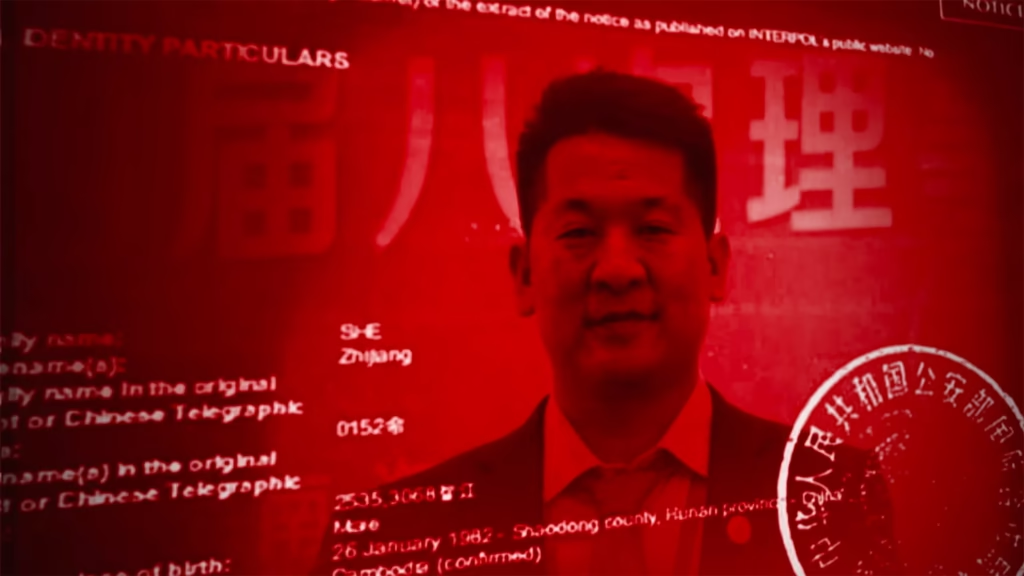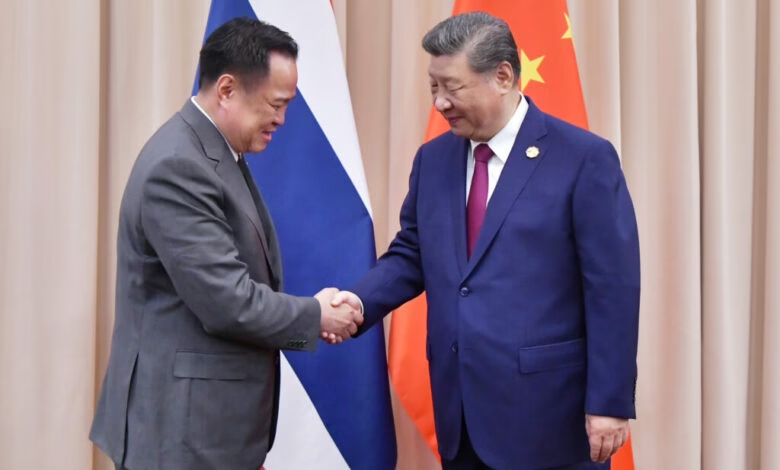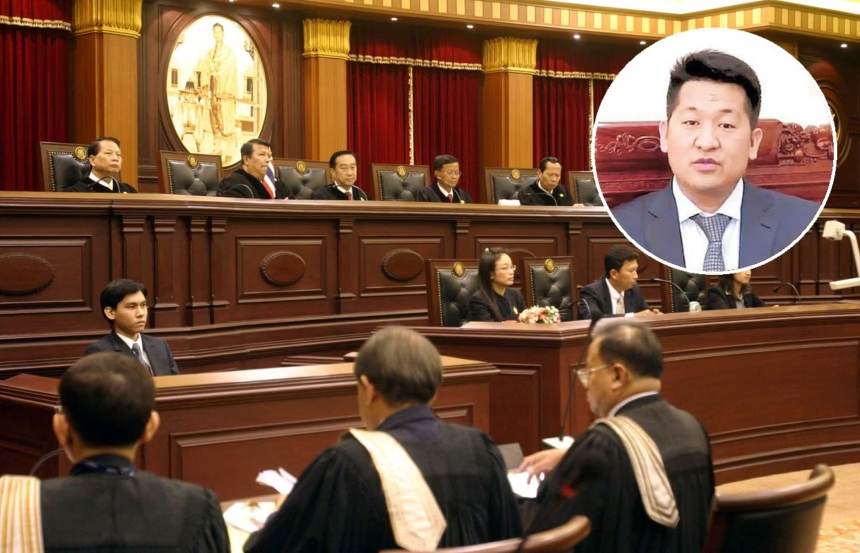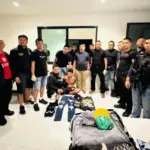BANGKOK – Thailand’s Court of Appeal has confirmed the extradition of She Zhijiang, a 43-year-old Chinese-Cambodian businessman accused of running vast illegal gambling networks tied to Myanmar’s Shwe Kokko project.
The Court of Appeal ruling, announced by the Office of the Attorney-General (OAG) on 10 November, clears the way for She Zhijiang to be sent to China within 90 days, closing a high-profile case that has gripped Southeast Asia for three years.
She Zhijiang was detained in Bangkok in August 2022 after a decade on the run. He has been wanted by Chinese authorities since 2012 under an Interpol red notice. Investigators in China accuse him of operating more than 239 gambling websites that drew hundreds of thousands of Chinese users.
Prosecutors say the platforms handled over 2,775 billion yuan in cash flow, about 12.6 trillion baht, with reported losses to victims topping 150 million yuan, about 700 million baht. The allegations centre on Shwe Kokko, a multi-billion dollar casino and entertainment complex on the Moei River in Myanmar’s Kayin State, opposite Thailand’s Tak province.
From northern Thailand, Shwe Kokko’s boom was hard to miss. Launched in 2017 as a special economic zone, it quickly grew into a resort-style destination with luxury hotels, clubs, and two large casinos presented as entertainment hubs. Thai officials grew uneasy as Chinese workers arrived in large numbers.
Many were promised jobs, then trapped in debt bondage, human trafficking, and online scam work. A veteran trader in Mae Sot, speaking anonymously, said the site looked like a mirage across the river, glossy on the surface but built on suffering. By 2020, reports of forced labour and cross-border fraud had turned the project into a byword for abuse.

The Arrest That Rocked the Border
She lived openly as an investor with Chinese and Cambodian citizenship, backing high-profile schemes, including Cambodia’s Dara Sakor development in Koh Kong province, long linked to scam operations.
On 19 August 2022, Thai Immigration Bureau officers, acting on a Chinese extradition request under the 1993 Thailand-China Extradition Treaty, raided a luxury villa in Bangkok’s Thonglor district. He was dining with associates when officers entered, seizing laptops, documents, and more than 10 million baht in cash.
The OAG moved quickly. In May 2024, the Criminal Court approved extradition based on the treaty’s dual criminality principle. The alleged offences, including running illegal casinos under China’s Criminal Code, are also crimes in Thailand.
She’s legal team, led by lawyer Sanya Eadjongdee, appealed, claiming the case breached Thai law, relied on politically motivated charges, and used offences dating back to 2011. After the Constitutional Court rejected a related challenge and upheld the process, Eadjongdee told reporters it was retribution rather than justice.
The Appeal Court dismissed the defence arguments. A three-judge panel said evidence supplied by Chinese authorities, including transaction records and witness statements linking She to Shwe Kokko, met the threshold required. A filing dated 6 November, reported in local media, said the appeal lacked merit.
With no further appeal available, Thai agencies, including the Royal Thai Police, the Department of Corrections, the Ministry of Foreign Affairs, and the Chinese Embassy in Bangkok, are now coordinating the handover.

What the Court Ruling Means for the Region
The decision carries weight beyond the courtroom. For Thailand, it strengthens cooperation with China at a time of growing trade worth more than 100 billion USD a year. The government of Prime Minister Anutin Charnvirakul, which has prioritised action against money laundering, welcomed the verdict as a strike against organised crime.
Human rights groups, including Amnesty International Thailand, warn that she could face mistreatment or an unfair trial in China, where gambling crimes can draw life sentences.
For communities in Chiang Rai, where porous borders and armed conflict in Myanmar fuel smuggling and scams, the case is a stark warning. Local MP Anusorn Iamsa-ard said small gambling rings have been dismantled, yet networks tied to projects like Shwe Kokko show the depth of the problem.
As the transfer to China nears, likely by chartered flight to Guangzhou, Thai authorities have stepped up actions against remaining cells. Thai cyber police last week raided an online betting ring in Chiang Rai, seizing 5 million baht and arresting 20 suspects.
She Zhijiang’s extradition marks a turning point in the effort to dismantle cross-border gambling and scam networks. The Moei River still carries the echoes of fortunes made and lost, but Thailand is taking a firmer line against transnational crime. Whether it deters the next syndicate leader will depend on tighter borders, better policing, and sustained regional pressure.














